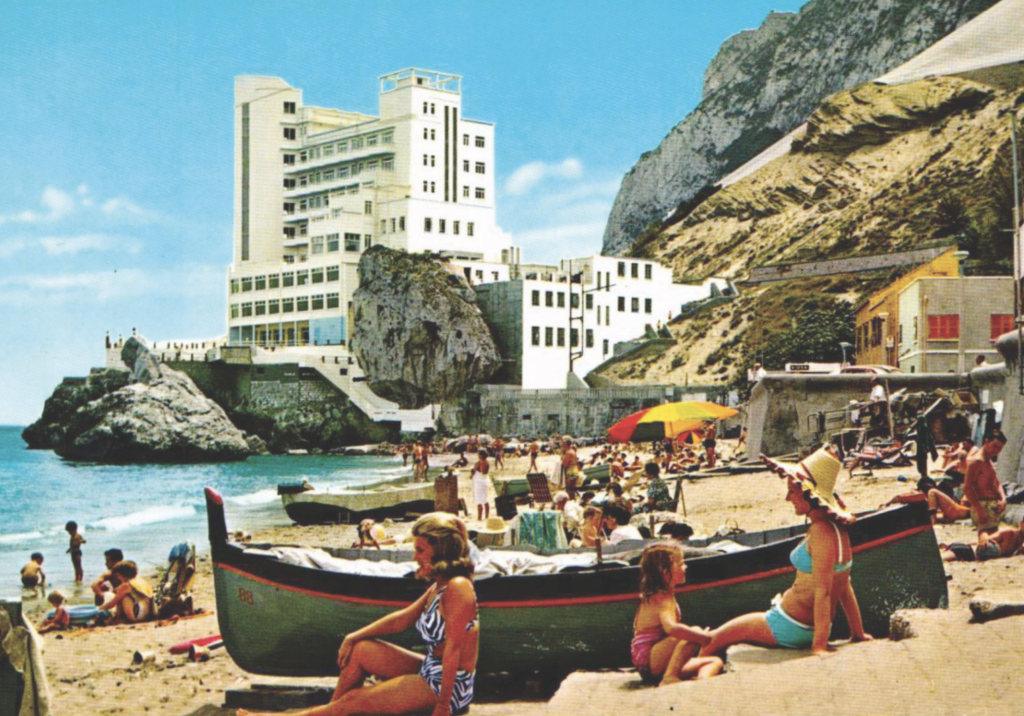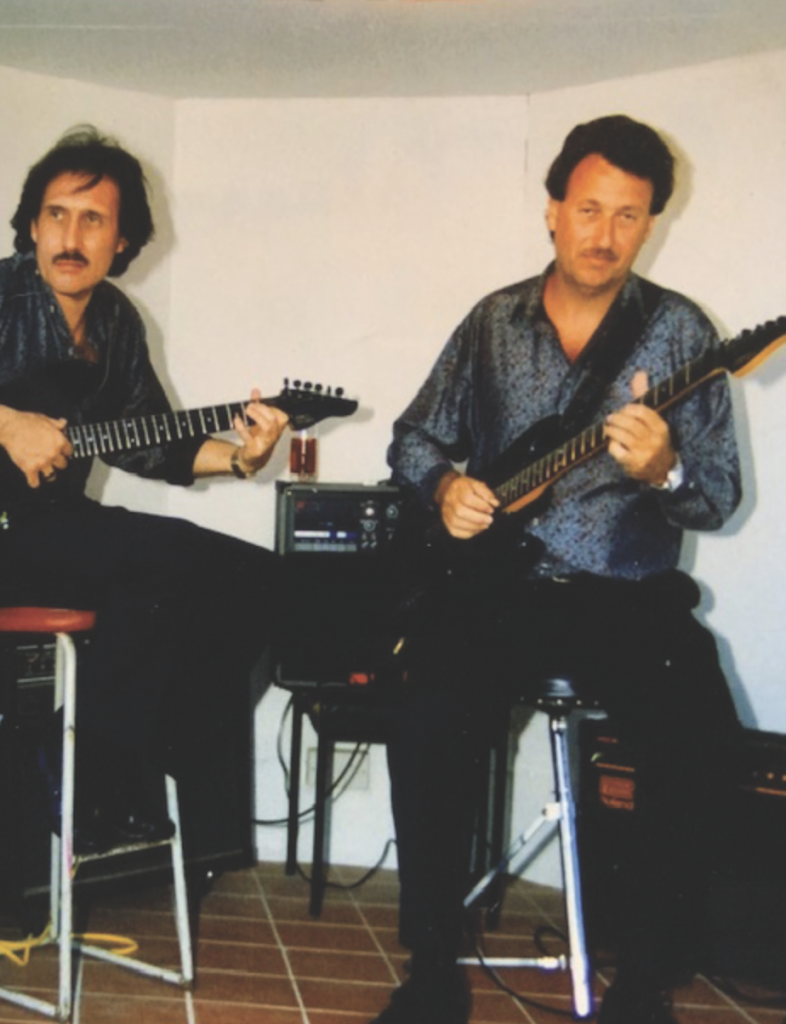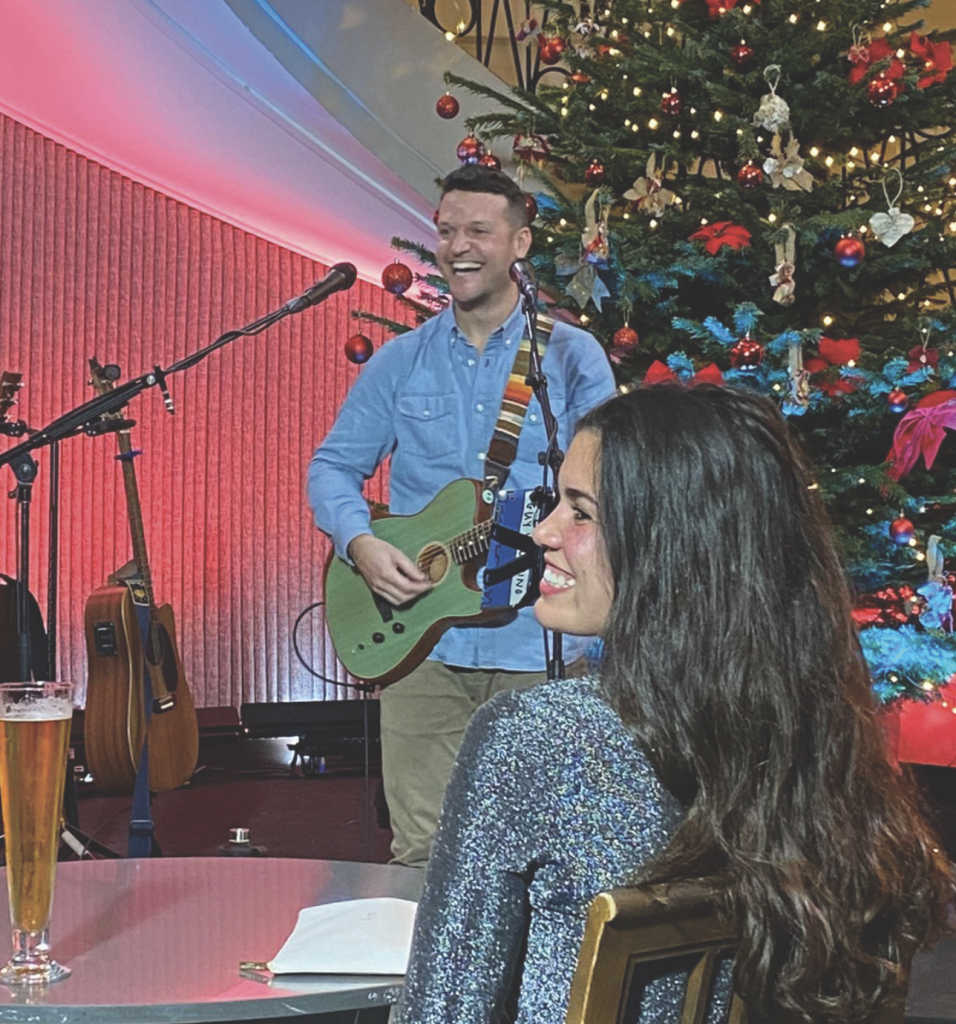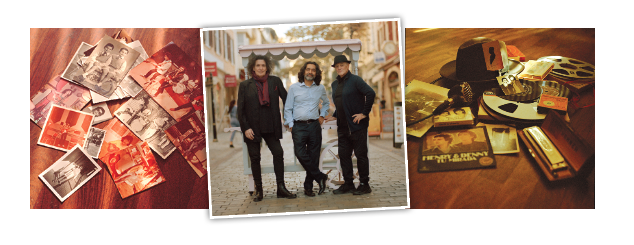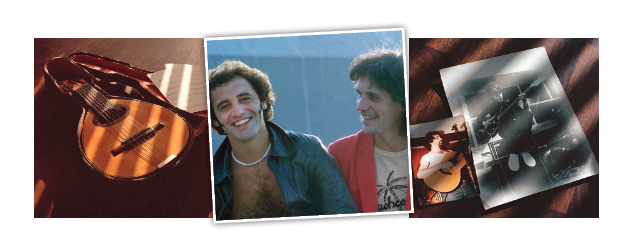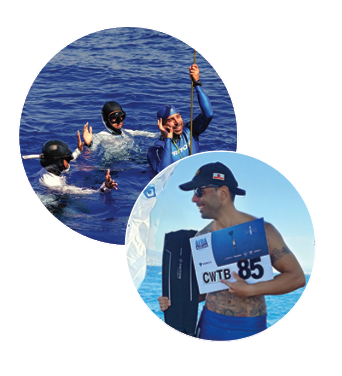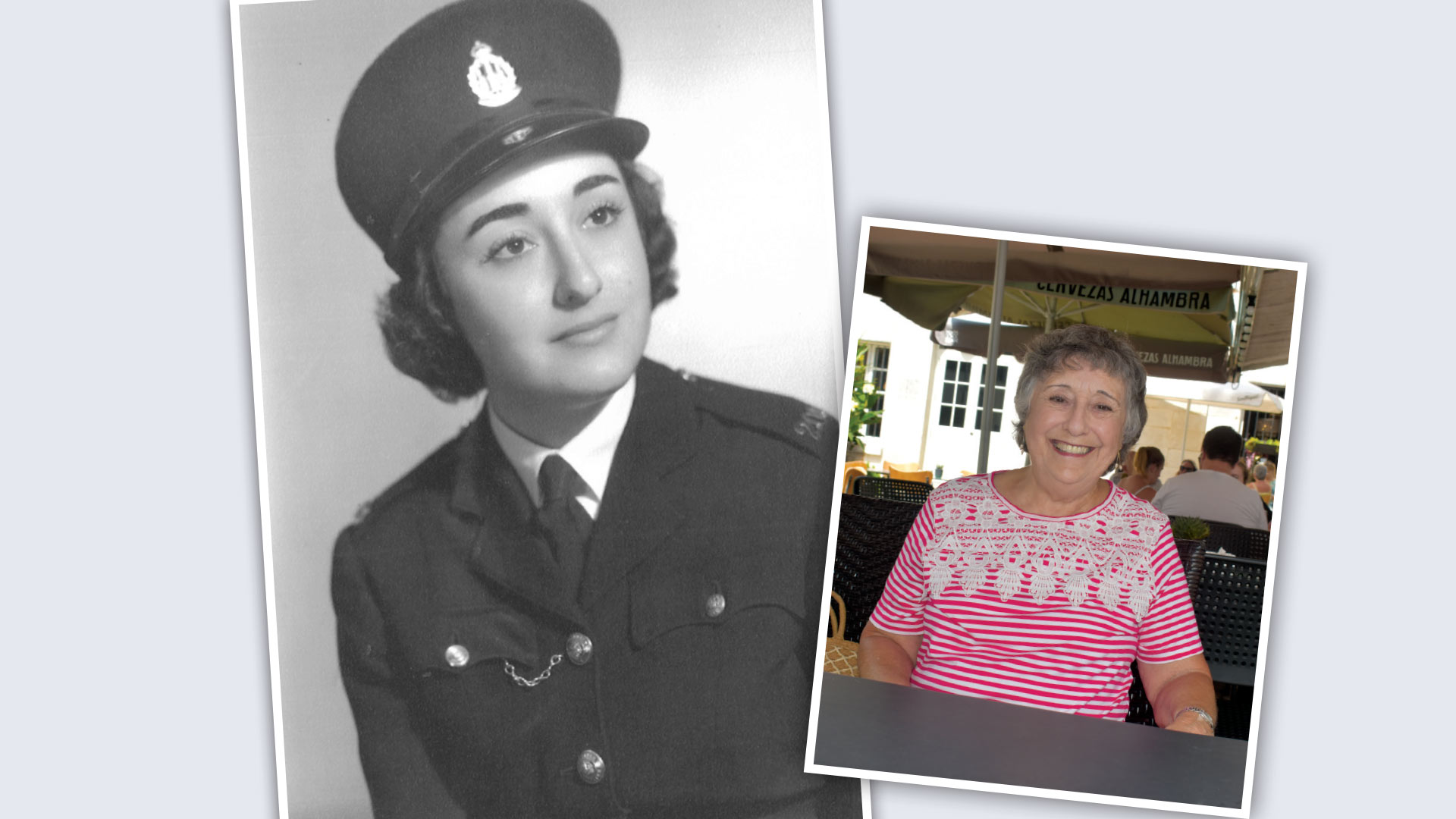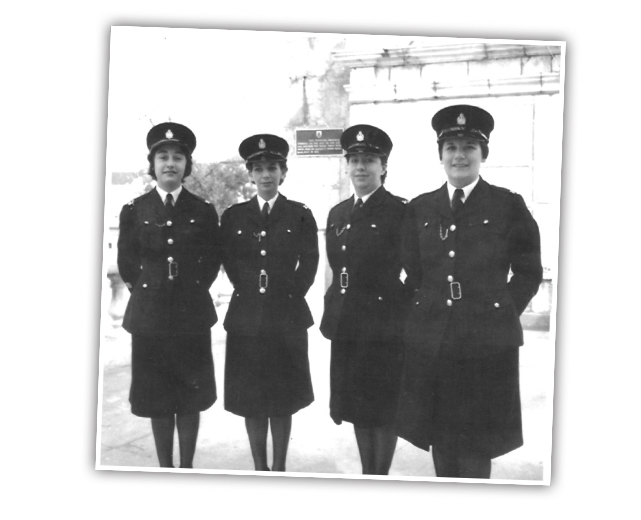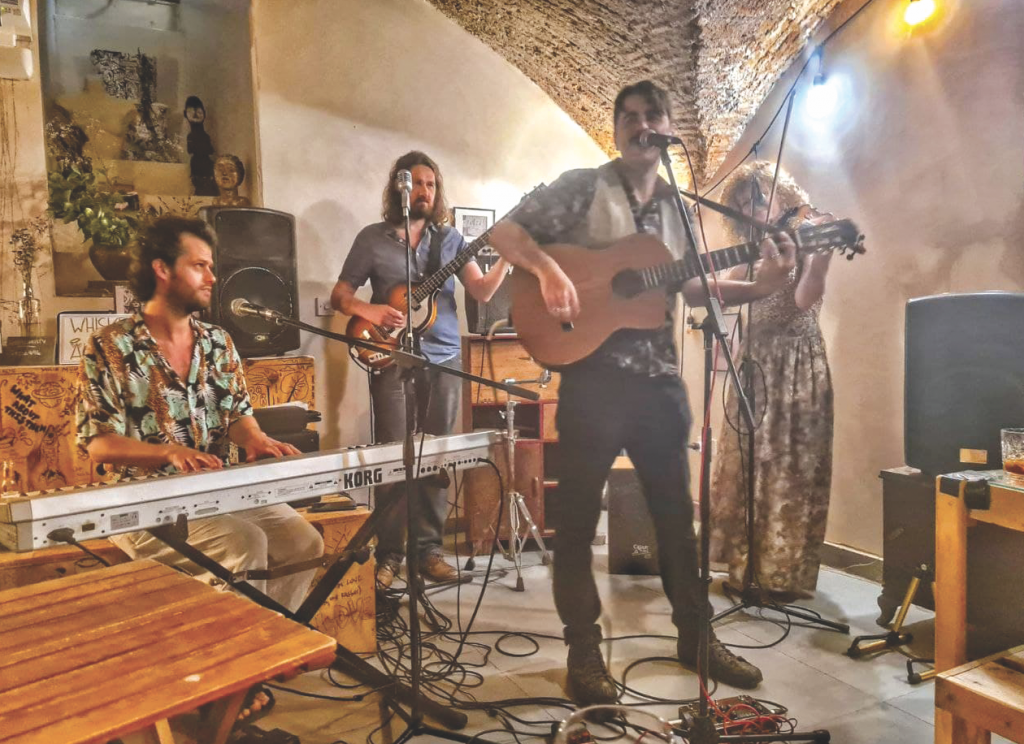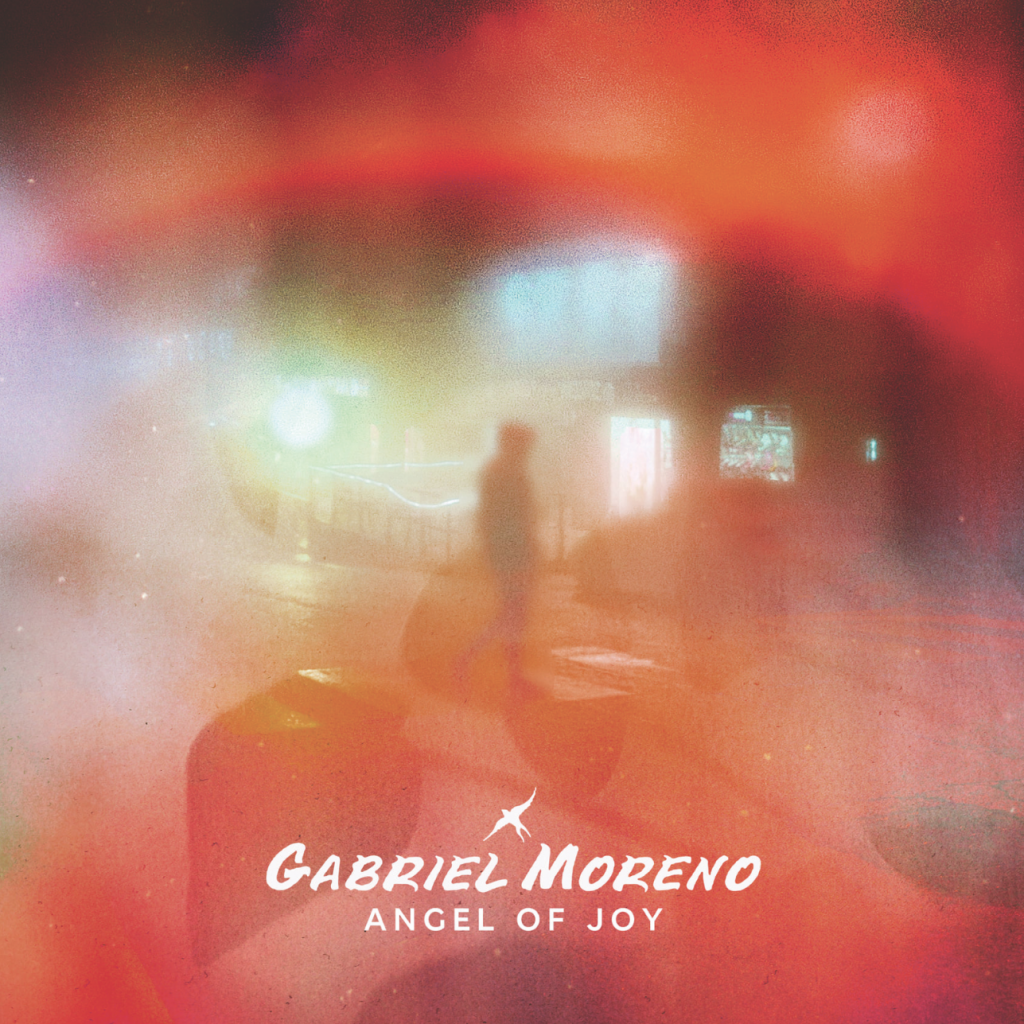Guy Valarino and the Festival Hall
I sit in the beautifully decorated Festival Hall at the Caleta Hotel in anticipation to the start of a live concert by Guy Valarino. To all intents and purposes it’s New Year’s Eve (except that it isn’t) and GBC TV is filming a special – ‘An Evening with Guy Valarino’ which aired on the last night of 2021. I have mixed emotions because a chapter of my earlier life as a musician saw me play this iconic venue many times during the festive seasons of the seventies and eighties. Guy Valarino is from a new age of musicians who with technology at their feet can construct and deconstruct live music in front of our very eyes.
Guy is the only true exponent of ‘Looper music’ on the Rock. He will build up phrases by recording, playing back and adding parts to construct a full backing track with harmonies and percussion, a track with which he sings along to. All ‘live,’ all instant and all magical like ‘Shazam’. An acute sense of timing and a solid knowledge of song production techniques as well as a high standard of musicianship are essential. He has all those qualities in spades and is fascinating to watch and listen to. He writes his own material and on this occasion he played two of his best known creations along with a selection of popular covers to an intimate audience.
The Festival Hall is soon to be no more as the Caleta Hotel is being demolished to give way to a Hilton Hotel. I can’t bring myself to embrace the idea that this beautiful and ‘properly vintage’ events venue is to be lost forever. There are so many memories here belonging to many across our community that will only be preserved in photographs, wedding videos, GBC archives and newspaper cuttings. In its heyday this venue could host well over a hundred diners to sumptuous seasonal multicourse menus with live music at the bottom of the elegant stairs in the nook where the gorgeous Christmas tree sits tonight. A lovely backdrop to Guy’s concert setting evoking my memories of the great traditional Christmas and New Year’s Eve dinners which went on until early English breakfast at 430 am – for which everyone stayed on and more came from other venues in search of.
We are briefed by GBC’s Paula Latin before the concert kicks off to react and enjoy ourselves and also to turn off our mobiles. Could I ever have imagined that we would all be carrying telephones in our pockets that have more technology in them now than the first mission to land a man on the moon way back in the 60’s? Guy eases himself into a ten song set which he introduces in his quiet charismatic way and which may seem affable in manner but his skills at this game have been honed while travelling around the UK and continent hosting intimate shows like this in front rooms and small venues.
This is anything but a small venue but he fills it up with a polished performance which has our eyes riveted on his guitar playing, his singing microphone and an additional one to which he adds percussion, and his own harmonies. We are all in awe watching a ‘one man band’ recreating complex music and making very faithful renditions of hits that we all know and love. Hats off to this ‘Guy’! He has the pulse on the melodic songs which touch our hearts. He also has skills and the courage to take them on while surgically reconstructing them before our eyes. This ‘Looper art’ is better seen and heard in a ‘live’ situation, up close where the magic unfolds as the songs come to life.
During a break in recording I chat to the show’s producer Paula Latin who is also in love with the Festival Hall and like me will no doubt pine for a similar iconic setting to steal our hearts in the future. Latterly the hall has been hosting the famous Chess dinners with top players who have over twenty years made Gibraltar the home of world chess competitions. Paula reminds me of the Miss Gibraltar shows which have also been televised from here and I nod but my head is miles away still playing those cherished wedding songs, hits in their day, when a young couple would step out onto the marble floor of the Festival Hall and display their love to their family and friends. I’m sure that the romance of a Caleta Palace wedding has produced a young generation which would be hard put to relate to the nostalgia which now fires those memories in me that also told me that “When the father of the bride is much younger than you it’s time to retire from playing at weddings.”
If you watched the run up to the GBC TV countdown on New Year’s Eve you saw Guy Valarino and hopefully enjoyed his concert, but if you get the chance to see him live in a small setting or a wedding cocktail event, pay him a visit and admire how he puts his music together. His always polished performances command a lot of respect from the cognoscenti and also from dinosaurs like me who turn up to scrutinize and appreciate his music in ‘iconic vintage halls’ that will be sadly missed by many folk who can (and will) tell you how the festive season used to be. Here’s hoping that the New Year will bring good health and prosperity to all communities that have been touched by the pandemic which we still can’t seem to shake off.


